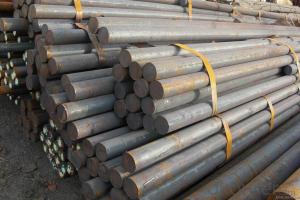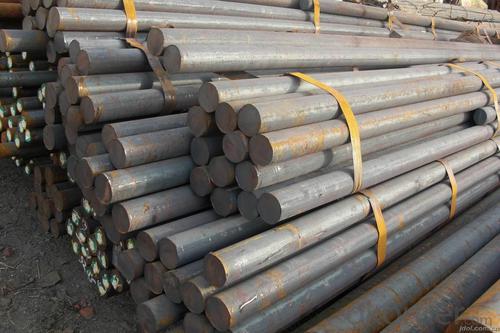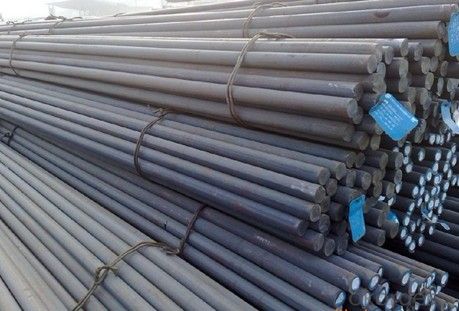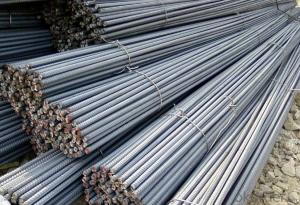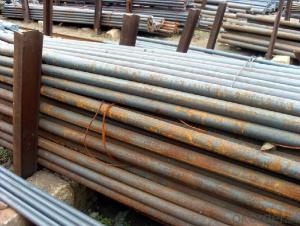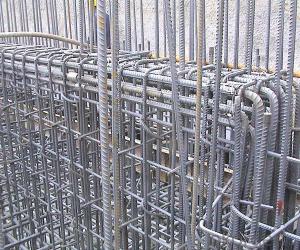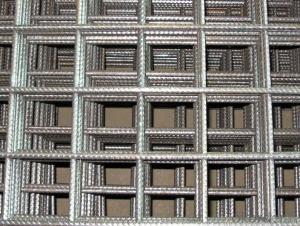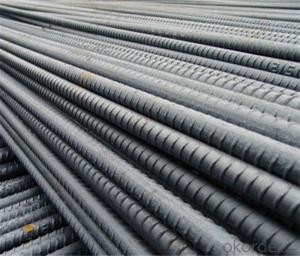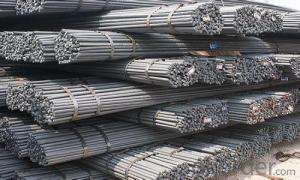Building Materials Reinforcing Deformed Steel Bar
- Loading Port:
- China main port
- Payment Terms:
- TT OR LC
- Min Order Qty:
- 30 m.t.
- Supply Capability:
- 10000 m.t./month
OKorder Service Pledge
OKorder Financial Service
You Might Also Like
Specification
Building Materials Reinforcing Deformed Steel Bar
Product Information:
Rebar is a common steel reinforcing bar, used in reinforced concrete and reinforced masonry structures. It is formed from mild steel, and is given ribs for better frictional adhesion to the concrete. The Rebar is an iron rod , a weldable plain reinforcing steel bar, and can be used as well for steel meshes
In order to avoid farthest the tax in China, and to provide for our clients the goods with prime quality and more reasonable price, we have registered Sino Golden Sunshine (group) Stock CO.,LTD. in Hong Kong as our trading platform for overseas customers.
We can deliver our cargos to Tianjin Port China within 20 days after signing the contract and receiving the L/C or the payment by T/T from the customer. At the same time, we have good cooperation with many powerful shipping companies and forwarders , which guarantees that the cargos will be loaded on time and will arrive at the foreign port designated by our customers in time
Chemical Composition(%)
| C | Si | Mn | P | S | B | Cr | Cu | V | Mo | CEQ |
| 0.19 | 0.13 | 0.41 | 0.037 | 0.018 | 0.0015 | 0 | 0 | 0 | 0 | 0.26 |
Product Overviews:
| Product Name | Typical Grades | Diameter(mm) | Standard adopted |
| Carbon Steel | 20 (1020/S20C/C22) | Ø16-Ø300 | GB/SAE/JIS/DIN |
| 40 (1040/S40C/C40) | |||
| 45 (1045/S45C/C45) | |||
| Bearing Steel | GCr9 (51100/SUJ1) | Ø12-Ø250 | |
| GCr15 (52100/SUJ2/100Gr6) | |||
| GCr9SiMn (A485-Gr.1/SUJ3) | |||
| Cr-Mo Steel | 20Cr (5120/SCr420H/20Cr4) | Ø12-Ø250 | |
| 40Cr (5140/SCr440/41Cr4) | |||
| 42CrMo(4140/SCM440/42CrMo4) | |||
| Gear Steel | 20CrNiMo | Ø16-Ø600 | |
| 20CrMn(5115/SMnC420/20MnCr5) | |||
| 20CrNiMo(8620/SNCM220/20CrMiMo2) |
Product Show:

Our Advantages:
· Industry experience over 20 years.
· Shipment of goods -More than 70 countries worldwide.
· The most convenient transport and prompt delivery.
· Competitive price with best service.
· High technical production line with top quality products.
· High reputation based on best quality products.
With our experienced, enthusiastic and dynamic staffs, we assure to bring you the products with best quality, reasonable prices and good after-sales services under the motto: Friends First, Business After.
Communication, Experience, Expertise and Best efforts are our Promises to you.
- Q: How does special steel perform in extreme heat conditions?
- Special steel performs exceptionally well in extreme heat conditions. It has excellent heat resistance properties, enabling it to maintain its strength and structural integrity even at high temperatures. This makes it highly suitable for applications that involve exposure to extreme heat, such as in industrial furnaces, jet engines, and power plants. Its ability to resist thermal deformation and retain its mechanical properties ensures optimal performance and safety in such demanding environments.
- Q: How does special steel perform in cryogenic creep resistance?
- Special steels are known for their excellent cryogenic creep resistance. They exhibit minimal deformation and maintain their mechanical properties even at extremely low temperatures. This makes them highly suitable for applications in cryogenic environments where materials are subjected to significant stress over prolonged periods.
- Q: What are the different surface defects in special steel?
- There are several different surface defects that can occur in special steel. Some of the common defects include: 1. Scale: Scale is a thin layer of oxide that forms on the surface of steel during the manufacturing process. It can appear as a flaky or powdery substance and can be caused by exposure to high temperatures or improper cooling. Scale can affect the appearance and quality of the steel surface. 2. Pitting: Pitting is the formation of small, localized holes or depressions on the surface of the steel. It can be caused by corrosion, improper cleaning or surface preparation, or exposure to harsh environments. Pitting can weaken the steel and make it more susceptible to further corrosion. 3. Scratches: Scratches are physical marks or indentations on the surface of the steel. They can occur during handling, transportation, or processing of the steel. Scratches can affect the appearance and integrity of the steel surface and may need to be repaired or removed. 4. Roll marks: Roll marks are impressions or patterns left on the steel surface during the rolling process. They can appear as lines, grooves, or ridges and can be caused by uneven pressure or improper alignment of the rolling equipment. Roll marks can affect the surface smoothness and may require additional processing or polishing to remove. 5. Inclusions: Inclusions are foreign particles or substances that are embedded within the steel. They can be caused by impurities in the raw materials or contamination during the manufacturing process. Inclusions can weaken the steel and may lead to cracks or fractures. 6. Decarburization: Decarburization is the loss of carbon from the surface layer of the steel. It can occur during heating or annealing processes, and it can result in reduced hardness and strength of the steel surface. Decarburization is usually undesirable in special steel as it affects its performance. These are just some of the surface defects that can occur in special steel. It is important to identify and address these defects to ensure the quality and performance of the steel product.
- Q: How does special steel perform in low-temperature environments?
- Special steel performs exceptionally well in low-temperature environments. It exhibits excellent toughness, high strength, and remarkable resistance to brittle fracture, which makes it suitable for various applications in extreme cold conditions. Additionally, special steel maintains its mechanical properties even at sub-zero temperatures, ensuring reliability and durability in challenging environments.
- Q: How does special steel perform in casting applications?
- Special steel performs exceptionally well in casting applications due to its unique properties and characteristics. Firstly, special steel has excellent heat resistance, allowing it to withstand high temperatures during the casting process. This is crucial as casting involves melting the metal and pouring it into a mold, which requires materials that can endure extreme heat without losing their structural integrity. Special steel's high heat resistance ensures that it maintains its shape and strength throughout the casting process. Additionally, special steel possesses remarkable strength and toughness. This is vital in casting applications as it ensures that the final cast product will have the necessary strength and durability to withstand various operational conditions. Special steel's exceptional strength also allows for the creation of intricate and complex castings, enabling the production of components with intricate designs and precise dimensions. Moreover, special steel exhibits superior corrosion resistance. This property is especially beneficial in casting applications that involve exposure to harsh environments or corrosive substances. Special steel's resistance to corrosion ensures that the castings will remain intact and functional for an extended period, reducing maintenance and replacement costs. Furthermore, special steel offers excellent wear resistance. This property is crucial in casting applications where the castings will be subjected to friction, abrasion, or impact. Special steel's high wear resistance minimizes material loss, extends the lifespan of the castings, and ensures optimal performance in demanding conditions. Lastly, special steel has excellent machinability, making it easier to shape, cut, and finish during the casting process. This property allows for precise and accurate casting, ensuring that the final product meets the required specifications and tolerances. In conclusion, special steel is ideal for casting applications due to its exceptional heat resistance, strength, corrosion resistance, wear resistance, and machinability. These properties enable the production of high-quality and reliable castings that can withstand various operational conditions and deliver optimal performance.
- Q: What are the thermal properties of special steel?
- Special steel, also known as tool steel or alloy steel, possesses excellent thermal properties. It has a high melting point, allowing it to withstand extreme temperatures without losing its structural integrity. Furthermore, special steel exhibits good heat resistance, ensuring it retains its strength and hardness even when exposed to high thermal loads. Additionally, its thermal conductivity is relatively low, making it suitable for applications where heat transfer needs to be controlled or minimized. Overall, the thermal properties of special steel make it a reliable material for various industrial and engineering applications that involve high temperatures and thermal stresses.
- Q: What are the different methods of surface polishing for special steel?
- Different methods can be used to polish special steel surfaces, each offering its own advantages and applications. These methods include mechanical polishing, electrochemical polishing, chemical polishing, electropolishing, and vibratory polishing. Mechanical polishing utilizes abrasive materials to eliminate surface imperfections and create a smooth and reflective surface. This can be done manually or with automated polishing machines. It is effective for removing scratches, dents, and other defects. Industries such as automotive, aerospace, and precision engineering commonly employ this method. Electrochemical polishing, also known as electrolytic polishing, involves using an electrolyte solution and electric current to dissolve and eliminate surface material. It is particularly useful for complex shapes and hard-to-reach areas, providing a high level of surface smoothness. This method is frequently used in industries like medical devices, semiconductors, and jewelry manufacturing. Chemical polishing selectively removes surface material and creates a smooth finish using chemical solutions. It is effective for eliminating oxide layers, stains, and contaminants. This method is often used for stainless steel and other corrosion-resistant alloys. The process involves immersing the steel in a chemical bath and controlling factors like temperature, concentration, and time. Electropolishing combines the benefits of electrochemical and chemical polishing. It applies an electric current to remove surface material while dissolving it in an electrolyte solution. Electropolishing produces a highly smooth, clean, and corrosion-resistant surface finish. It is commonly used in industries such as pharmaceuticals, food processing, and semiconductor manufacturing. Vibratory polishing utilizes vibrating media and a polishing compound to remove surface imperfections. Steel parts are placed in a vibratory tumbler or bowl, where continuous movement causes the media to rub against the parts, resulting in a polished surface. This method is commonly used for small or delicate parts and can be a cost-effective and efficient option. When choosing a surface polishing method for special steel, factors such as desired surface finish, part geometry, material properties, and industry requirements should be considered. Consulting with experts or specialists is important to determine the most suitable method for a specific application.
- Q: How are aluminum alloys used in the automotive industry?
- Aluminum alloys are extensively used in the automotive industry due to their lightweight, high strength, and corrosion-resistant properties. These alloys are commonly utilized in the manufacturing of various components, such as engine blocks, cylinder heads, wheels, and body panels. By incorporating aluminum alloys, vehicles can achieve improved fuel efficiency, better performance, and enhanced safety while reducing overall weight and emissions.
- Q: How is special steel used in the textile supply chain?
- Special steel is used in the textile supply chain for various applications such as manufacturing textile machinery, equipment, and tools. The high strength and durability of special steel make it ideal for creating components that can withstand the demanding conditions of textile production, including high temperatures, corrosion, and heavy loads. It is commonly used in the production of spinning machines, looms, needles, and other crucial parts, ensuring efficient and reliable textile manufacturing processes.
- Q: What are the main characteristics of tool steel?
- Tool steel, a specialized type of steel, is specifically engineered for the manufacturing of tools such as drills, dies, and cutting instruments. It boasts several key attributes that render it suitable for these applications. Primarily, tool steel is renowned for its exceptional hardness. It contains a substantial amount of carbon, typically ranging from 0.5% to 1.5%, which contributes to its hardness. This hardness enables tool steel to withstand wear and abrasion, making it perfect for cutting and shaping materials. Another crucial characteristic of tool steel is its remarkable toughness. It possesses the ability to endure high impact and shock loads without fracturing or breaking. This toughness is vital in tooling applications where tools are subjected to heavy loads and forces. Tool steel also exhibits superb heat resistance. It possesses a high melting point, allowing it to retain its strength and hardness even at elevated temperatures. This heat resistance is essential in applications where tools are exposed to high temperatures during cutting or shaping processes. Furthermore, tool steel possesses excellent dimensional stability and machinability. It experiences minimal distortion and shrinkage during heat treatment, ensuring that the tool retains its shape and size. Additionally, tool steel is easily machined, enabling the production of intricate shapes and designs. Overall, the prominent characteristics of tool steel encompass high hardness, toughness, heat resistance, dimensional stability, and machinability. These properties establish tool steel as an ideal material for the production of tools that necessitate high strength, durability, and performance.
Send your message to us
Building Materials Reinforcing Deformed Steel Bar
- Loading Port:
- China main port
- Payment Terms:
- TT OR LC
- Min Order Qty:
- 30 m.t.
- Supply Capability:
- 10000 m.t./month
OKorder Service Pledge
OKorder Financial Service
Similar products
Hot products
Hot Searches
Related keywords
